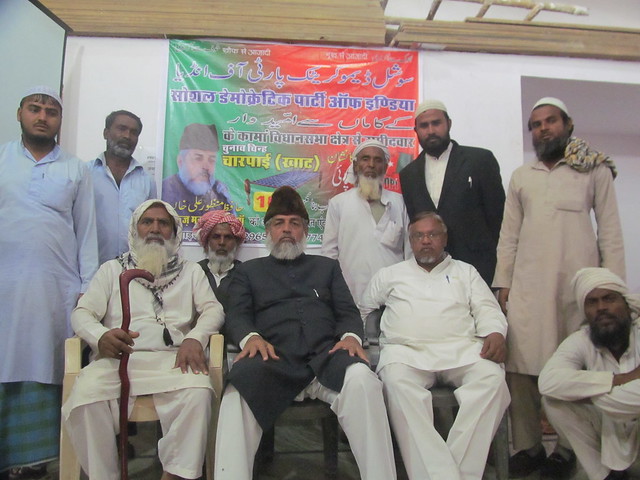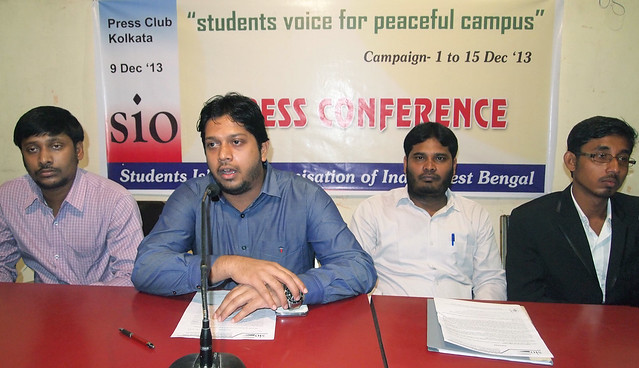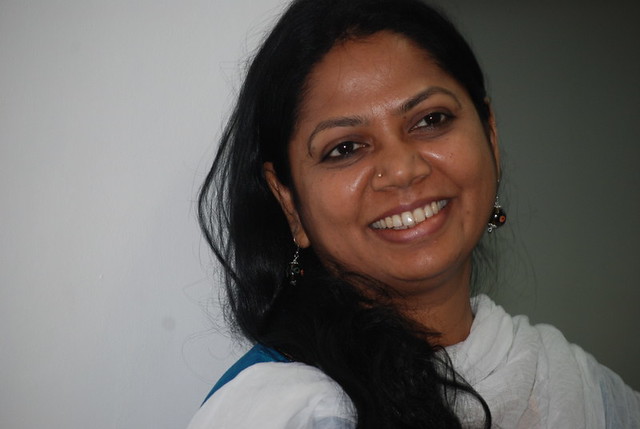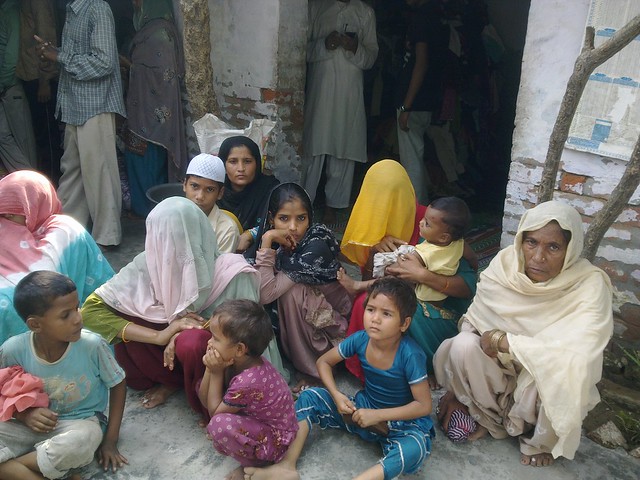By Shaik Zakeer Hussain, TwoCircles.net,
Bangalore: When Rajathi Samsudeen, was 13 years old, her family forced her to discontinue her studies and shut her away in the four corners of the house for nine years, later tricking her into marriage, against her wishes.
In those nine years of solitude, shunned from the outside world, words and words alone became her sole companion. After marriage, her husband insisted she stay indoors, forbidding her from writing, which by now had become her only mode of expression. Finally when her poems reached the hands of a publisher and were published, Rajathi, who by then had taken the pen name Salma, to conceal her identification, had become a sensation among Tamil readers. Today she is one of the most renowned Tamil poets and her journey so far has only been a beginning.
![]()
Salma
In this Interview with TCN’S Shaik Zakeer Hussain, Salma delves more into her life and her writing.
It looks like Salma the poet, has overshadowed your real name, do you feel the same way, or are both the writer and the person behind the name the same?
When I was married off, my new family, including my husband were vehemently opposed to my writings. So hostile was he towards it that, most nights he’d pick a fight, once he even threatened to pour acid on my face, if I didn't stop, so I had to hide my writings from him. I started writing, while he was asleep, sometimes even in the toilet. Under those circumstances, I thought it was unwise to send my poems to publications under my name, so I sent it under the name Salma. Salma was born, because of the inability of Rajathi to face the world she was binded to, so I see Salma as my real self. That doesn't mean Rajathi has lost, she lives, but she lives along with Salma and not independent of her. The name Salma, by the way was inspired from the character Selma Karamy, from Khalil Gibran's poetic novel The Broken Wings.
Could you tell us something about your childhood and how did those experiences shape your writing?
I was born into a family, where I had a very strict upbringing. Thuvarankurichi in Trichy district of Tamil Nadu, where I am from, is an orthodox and stereotypical Indian village, in a literal sense, where girls are confined to their houses most of the time, and it was more so in my family. Despite my interest in reading and writing, I was forced to discontinue my studies, when I was in my 9th grade and after being literally put under house arrest for some nine years, I was married off to someone, against my wishes.
During those nine years, when I was in my house, because I had nothing else to do, reading was the only thing, I could turn to and I devoured every book and every bit of paper I came across. I read Tolstoy, Dostoevsky and many other authors, and at the age of sixteen, I began writing poems. At nineteen my poems were published in the art magazine Kalachuvadu, under my own name. Those moments of loneliness and not able to meet anyone outside my immediate family, had a profound impact on my writing.
How did you come to terms with your marriage?
The environment I was born into, women have little or no say in any matter, especially when it comes to choosing their partners, who they have to spend their rest of the lives with. My marriage was arranged at a very early age, but I was hell bent that I didn't want to get married at that age. Fortunately, my parents agreed and I was able to fend off marriage until I was 22. But my parents wouldn't have it anymore and my mother feigned chest pain and forced me to get married against my wishes. So, it was quite a difficult phase, especially because no one at my husband's house, including himself were pleased with my writing, they wanted me to put a stop to it.
Was writing a reaction to the marriage or had you decided to become a writer even before that?
I didn't decide to or ever dreamed of becoming a writer. Like I have said before, I started writing, when I was confined to my house and had to discontinue my studies, so writing became my companion, my instrument to measure and depict the way I saw things and it continued that way even after my marriage. In fact, the urge for this companion became more stronger after my marriage.
![]()
When and how did your family learn about your writings and what was their reaction?
My poems, which primarily talks about culture, society and women's issues among many other things became a sensation around Tamil Nadu, when major magazines started publishing it, people wanted to know who this mysterious writer was, who so candidly depicted village life and female sensuality. So, when my life story and my picture were published in Anantha Vikatan, a popular Tamil magazine in October 2001, my family and the entire village was outraged, this time they couldn't come to terms with it.
You are involved in politics as well, how did that happen?
Due to the quota system, the Thuvarankurichi town panchayat seat got reserved for women candidates in 2001. My husband, who is a popular local politician saw an opportunity and wanted to take advantage of it. He asked his sister and my mother-in-law to contest, but when both refused he asked me to take part and I won.
I was the chairperson of the Tamil Nadu Social Welfare Board from 2007-2011.
One of your identity is also that, you are a Muslim, or to be more precise, a Muslim woman, so do people you meet, ask you about that part of your identity? What do they ask and how do you respond?
I have never portrayed myself as being an 'oppressed Muslim woman' or 'victimised Muslim woman', nor have I let anyone assume such a thing about me, if that's what you mean. Because, frankly this has nothing to do with Islam or any particular religion. There are many women, who are not Muslim, but have gone through and continue to go through the same predicaments, that I was subjected to. This has primarily to do with, male dominated society's oppression against women.
There is a documentary and a book released based on your life, how has life changed for you since?
Though the attitude of my family and my village remains largely unchanged, but my work has found admirers in many parts of the world. Since the release of the film and the book, I have been traveling a lot and with that has come, whatever change had to come. But most of all, I should say I am happy that my writing has been appreciated by people.
The book 'Salma: Filming a Poet in her Village' is available atOR Books.









